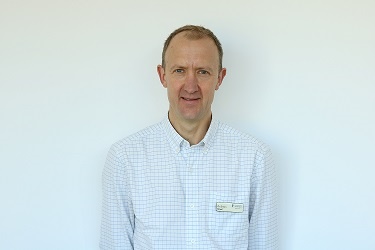Our experience as the only practice trialling the Oxford Covid Vaccine

We have a lot of experience with clinical research, and over the last 13 years have been involved in several meningococcal and influenza vaccine trials.
That led us to being selected as a site for the Covid-19 vaccine trial that was developed at the Jenner Institute at the University of Oxford.
We quickly recruited our goal of 480 participants from across the East Midlands, who were randomly allocated to receive the new ChAdOx1 nCoV-19 vaccine or an existing meningococcal vaccine.
Those taking part had to be working in an environment that put them at high risk of exposure to Covid-19 infection, including healthcare professionals working on coronavirus wards; workers in primary care; paramedics and care home workers. We took participants from across Nottinghamshire, Derbyshire, Lincolnshire and Leicestershire.
Participants need to undergo blood tests and screening and provide follow-up information about any post-vaccine symptoms.
Usually, this sort of trial would take months of planning, but this has been done at a completely different scale and pace. We have a great team here though, and everyone has pulled together.
We’re a unique practice in that we’re one of the largest single site practices in the UK, and among our 47,000 patients, our demographics are heavily skewed towards the under-25s.
Because we’re involved in lots of research, most of our doctors and nurses are trained in good clinical practice around participating in trials, getting informed consent and recording everything properly.
But we were in a pandemic, so there was lots to consider around how we continue to serve our registered patients . This was a massive undertaking, and we’ve all been doing extra hours in evenings and weekends to make it work.
For us, it did coincide with what would have been a quiet period. The university closed, and everything was being done over the phone. We kept in touch our patients as most of them dispersed around the country, but there was some spare capacity that made it possible to take part in the study.
This would normally take months of planning, but this is a different scale and pace
I believe general practice is really well-placed to deliver this sort of study because mass vaccination is something we’re good at. We’re very used to delivering lots of vaccines in a short space of time and we have the training and experience that a hospital or research department may not have.
Our clinicians are also experienced in dealing with minor illnesses and side effects from vaccines, and we can provide an out of hours service to deal with any urgent problems. We’re also good at the logistical side of managing appointments and can do lots of things via text. It’s the way we’re set up to work already.
It might not suit every general practice. For example, there might be special storage requirements for a particular vaccine and biosecurity precautions which may not be part of normal working, so it’s not something you should go into without some careful planning.
Yet I would argue that primary care teams should be doing more of this sort of research and there may well be more opportunities for that as more Covid vaccine trials are set up to test candidates in increasingly large numbers of people. Those later studies will probably not be as onerous in terms of screening and follow up.
We’re also taking part in two other priority Covid-19 research projects – one looking at antibodies in children (What’s the STORY), and the PRINICPLE trial, which is testing treatments in primary care to reduce the need for hospitalisation in some high-risk coronavirus patients.
Of course, this is not the end of the coronavirus or pandemics in general and we must think about how we deal with these sorts of events in the future. Remembering swine flu, its clear that we still have a lot of learning to do.
As an NIHR primary care specialty lead, I would like to see more GP practices take part in this kind of research and use our expertise in vaccination to maximum effect. It’s a commitment, but it should be happening in primary care.
Dr Simon Royal is a GP at the University of Nottingham Health Service
Visit Pulse Reference for details on 140 symptoms, including easily searchable symptoms and categories, offering you a free platform to check symptoms and receive potential diagnoses during consultations.











